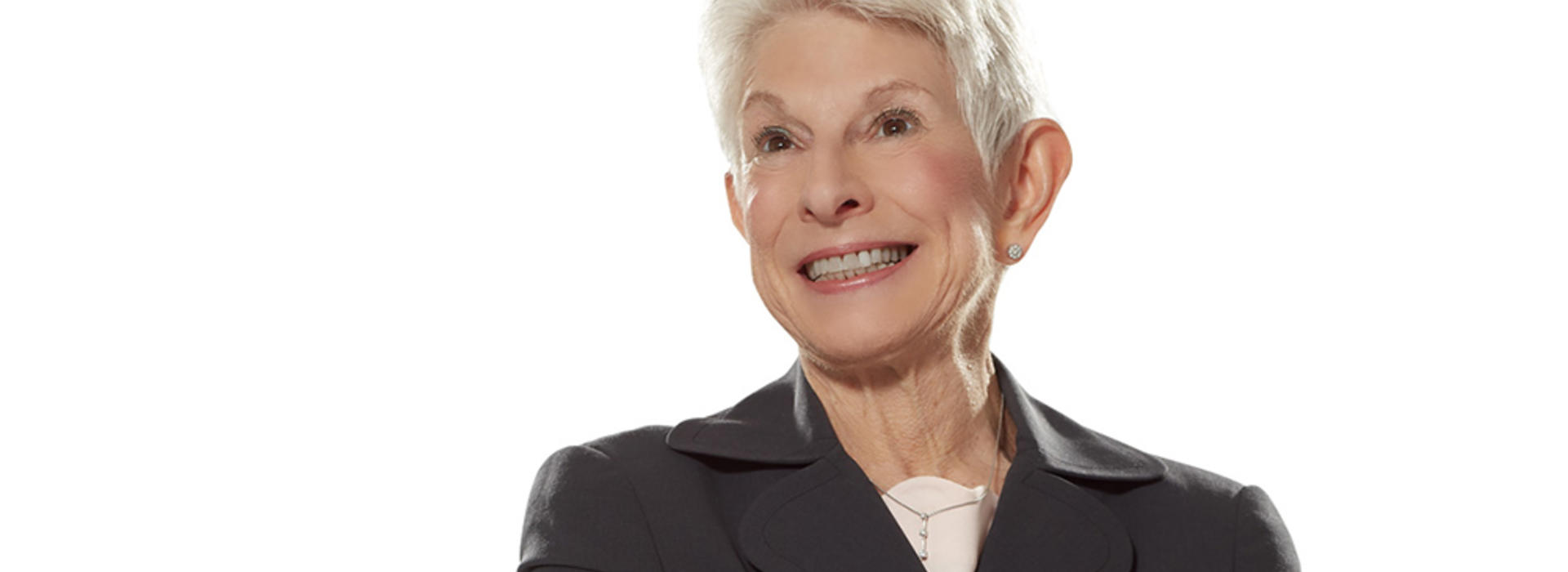
Alumna Reflects on Rewarding Career in Psychiatry, Medical Leadership
It’s been 50 years since Barbara Schneidman, MD, MPH, earned her degree from the University of Minnesota Medical School. As one of seven women in her class in 1970, she recalls being “mostly invisible," often mistaken as a nurse and rarely seen as a medical student. So, when Dr. Schneidman heard the news that she’d been nominated to receive the Medical School’s 2020 Distinguished Alumni Award, she was both proud and surprised.
“I got the best education at the Medical School,” she said. “If I hadn’t gotten into the University of Minnesota, I doubt if I would’ve gone to another school, unless I had a full scholarship. Because of that, I have left money in my estate plan to create a scholarship in my name. I am very indebted to this Medical School for getting me on a path that has been very rewarding.”
That path, admired by many colleagues today, has left an indelible legacy on medical education, medical licensure, psychiatry and women’s health—to name a few. But, her career began with the intent of pursuing psychiatry to care for people, like her mother, who long endured psychiatric problems without access to proper treatment.
After graduation, Dr. Schneidman moved to Seattle—“the hotbed for women’s health” at the time as she recalls—which exposed her to new career interests in outpatient women’s healthcare and working with mostly female victims of sexual assault.
“I moved into a very different environment where being a woman physician was not an oddity,” Dr. Schneidman said. “The University of Washington started one of the first sexual assault centers in the country, and they recruited me to be their medical consultant. And, I just saw all of my interests come together.”
After finishing her Master of Public Health degree and residency in gynecology and family planning in 1974, the University of Washington School of Medicine hired her as a faculty member in obstetrics and gynecology. She eventually completed her psychiatry residency in 1981 and transitioned to teaching and clinical work before state and national leaders recruited her for what Dr. Schneidman considers her “mid-career shift.”
In 1993, the American Board of Medical Specialities asked her to be their associate vice president. She worked there until 1998 when the American Medical Association (AMA) sought her talents to lead as their medical director of education. By 2002, she became the AMA’s vice president, serving in that role until 2008. That next year, she took on yet another role—this time as the interim president and CEO of the Federation of State Medical Boards. She did all of this while teaching for 17 years at the Northwestern University Feinberg School of Medicine.
“If anybody would’ve asked me in 1970 what I thought I would do, I would’ve said, ‘Well, I’ll be in a small, private practice.’ I never would’ve imagined that I would have this career,” she said.
After 2009, Dr. Schneidman remained involved in the organizations she served, but ultimately, made her way back to Seattle. She currently teaches psychiatry and behavioral sciences and assists with medical student admissions at the University of Washington School of Medicine.
“Psychiatry is a very exciting field to go into, and I think it’s attracting more and more medical students today,” she said. “I know if my mother had lived in a different era, her life would’ve been totally different because of these advances in psychiatry—everything is so different from what was available back then.”
Kenneth B. Simons, MD, with the Medical College of Wisconsin, described his admiration for Dr. Schneidman in his nomination letter for the 2020 Distinguished Alumni Award:
“Beyond what is written here and what is her vitae, is something that cannot be quantified—how Dr. Schneidman accomplished this in a period of time that was not hospitable to women. Not only a powerful leader, she has also been an incredible role model and mentor for many current women leaders and an inspiration to generations of women in medicine,” Dr. Simons said. “I hope it is abundantly clear that Dr. Schneidman has been and remains a woman of considerable importance within the house of medicine and that the foundation resulting in this influence was forged at the University of Minnesota Medical School.”